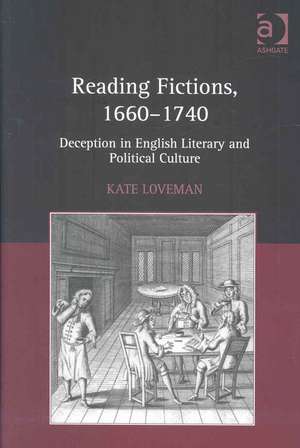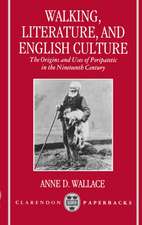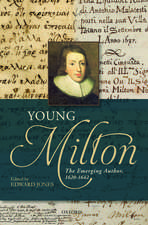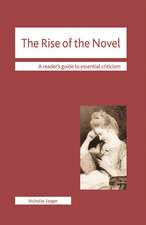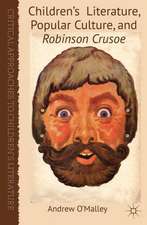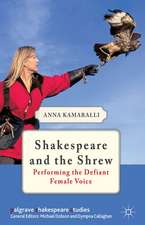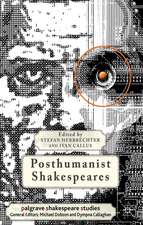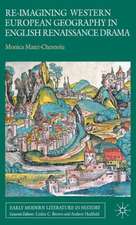Reading Fictions, 1660-1740: Deception in English Literary and Political Culture
Autor Kate Lovemanen Limba Engleză Hardback – 18 iun 2008
Toate formatele și edițiile
| Toate formatele și edițiile | Preț | Express |
|---|---|---|
| Paperback (1) | 449.41 lei 6-8 săpt. | |
| Taylor & Francis – 19 dec 2018 | 449.41 lei 6-8 săpt. | |
| Hardback (1) | 1054.71 lei 6-8 săpt. | |
| Taylor & Francis – 18 iun 2008 | 1054.71 lei 6-8 săpt. |
Preț: 1054.71 lei
Preț vechi: 1286.24 lei
-18% Nou
Puncte Express: 1582
Preț estimativ în valută:
201.81€ • 210.71$ • 167.03£
201.81€ • 210.71$ • 167.03£
Carte tipărită la comandă
Livrare economică 04-18 aprilie
Preluare comenzi: 021 569.72.76
Specificații
ISBN-13: 9780754662372
ISBN-10: 0754662373
Pagini: 232
Dimensiuni: 156 x 234 x 14 mm
Greutate: 0.45 kg
Ediția:1
Editura: Taylor & Francis
Colecția Routledge
Locul publicării:Oxford, United Kingdom
ISBN-10: 0754662373
Pagini: 232
Dimensiuni: 156 x 234 x 14 mm
Greutate: 0.45 kg
Ediția:1
Editura: Taylor & Francis
Colecția Routledge
Locul publicării:Oxford, United Kingdom
Cuprins
Contents: Introduction; Sceptical reading in the 17th and early 18th centuries; The Strange Finding Out of Moses his Tombe: strategies and motives for hoaxing; 'Florishing lyes': coffee-house wit in the Restoration; More Shams Still: reading in the Popish Plot and Exclusion crisis; News, novels and imposture, 1688-1702; Defoe and his 'ill-disposed' readers; Swift's bites: 18th-century raillery in theory and practice; Bubbling sentiments: Richardson's Pamela and Fielding's Shamela; Conclusion; Select bibliography; Index.
Recenzii
'In this elegant, informed, and daring study, Kate Loveman presents an argument that lies athwart the critical preoccupation with the genealogy of the novel. Loveman shows that what we call the novel emerged from within a rich culture of tale-telling in which fictions of all kinds were endemic to coffee house circles, to a world in which detecting shams endowed social prestige and which therefore encouraged skeptical reading within an essentially ludic culture, whose habits persisted even after the emergence of sentimental modes of apprehension.' Richard Kroll, University of California, Irvine, and author of Restoration Drama and 'The Circle of Commerce': Tragicomedy, Politics, and Trade in the Seventeenth Century (2007) '... an impressive work of scholarship...’ Review of English Studies ’Sometimes common sense, especially when joined by excellent research, a clear head, and a prose style resolutely devoted to informing rather than impressing, rises to the level of genius. Reading Fictions is in this class, and is required reading for students of both Augustan irony and the early novel.’ Eighteenth-Century Fiction ’... learned, audacious, and gracefully written... No student of Defoe or Swift [...] can afford to neglect Loveman’s extremely powerful chapters on those writers. From this point forward, any study of the novel’s Restoration and early eighteenth-century origins which fails to pick up on Loveman’s ideas will be fit only for posterior uses.’ Modern Language Review '... Loveman has [succeeded] in surveying so broad a field and distilling such a cogent argument from her evidence.' Royal Stuart Journal 'Loveman’s arguments are subtle and always alive to the nuances of particular biographical circumstances and publishing history; a great deal of the material is unfamiliar, and that which is familiar is seen in a new and interesting way.' Modern Philology 'This scholarly and elegantly written book does not only provide new approaches to
Notă biografică
Kate Loveman is lecturer in English at the University of Leicester, UK.
Descriere
Kate Loveman explores the ways in which seventeenth- and eighteenth-century reading habits were applied to and shaped genres. Examining works by authors such as Defoe, Swift, Richardson and Fielding, she recovers a lost critical discourse through which authors and readers interrogated, mocked, and elaborated fictions. Her lively book offers a striking new approach to Restoration and eighteenth-century literature and politics, in particular to understanding the development of the novel.
